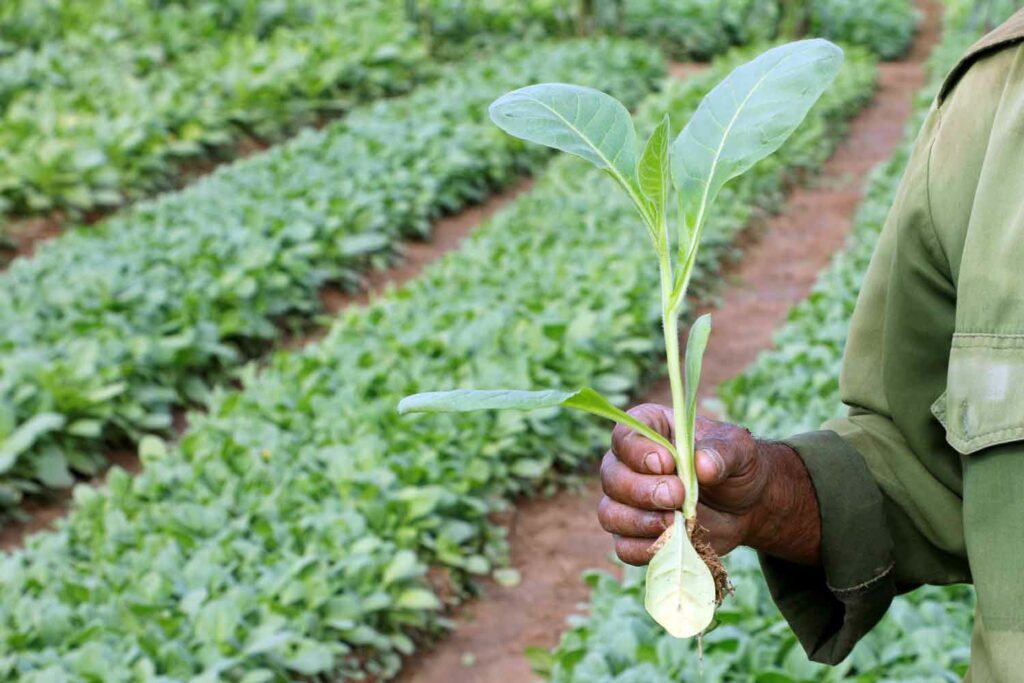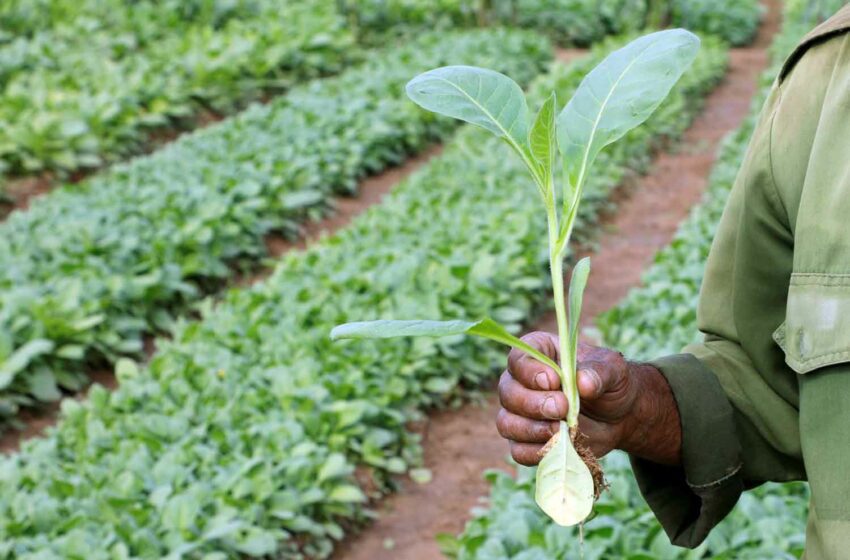
The size of the seedbed sown for Zimbabwe’s 2023-2024 tobacco crop is 15.5 percent larger than in the previous season, reports New Zimbabwe, citing the Tobacco Industry and Marketing Board (TIMB).
“Preparations for the 2023-2024 tobacco season are progressing well. Currently, a total of 98,217 hectares of seedbed area has been sown; this is in comparison to 84,985 hectares sown during the same period last year. The first of September marked the earliest date for planting irrigated tobacco,” the TIMB stated.
“Currently, growers are discing and preparing ridges for the transplanting of hardened seedlings.”
The TIMB has added shisha tobacco to the list of tobaccos to be grown. For the 2023/2024 season, 4,390 grams of shisha tobacco seed covering 549 hectares has been disbursed to growers. (Also see “Great Expectations,” Tobacco Reporter, May 2022.)
After a call encouraging registered growers to renew their grower numbers for the next season and a call for first-time growers to apply at the TIMB regional offices, 51,695 growers have registered for the 2023/2024 season.
“We have new contractors coming on board for the 2023/2024 season. Six contractors have been licensed to increase the number of tobacco financiers for this season,” said the TIMB.
Zimbabwe’s tobacco growers produced a record 291.1 million kg of tobacco worth $882.2 million this season. The country’s aim, formulated in the government’s Tobacco Value Chain Transformation Plan, is to reach 300 million kg of tobacco a season by 2025.
The regulator also announced measures to improve trade practices.
“TIMB has put in place some key strategies to tackle the issues of mis-invoicing and transfer pricing that have been negatively impacting the tobacco industry. Among the strategies is the Compliance Administrative Framework that was implemented in 2021 and the setting up of a new Compliance Administration Department,” the regulator said.
“Before contracting commences, all interested companies submit their commitment documents, which show their capacity to contract for the season, which includes proof of funding, unit cost of inputs to be given to farmers and the interest component to be charged.
“Such commitment documents are then vetted by our Compliance and Licensing Committee that will inspect all such, and if any is found in violation of the board’s compliance standards, such will be rejected, and no approval for contracting farmers will be given,” said the TIMB.











